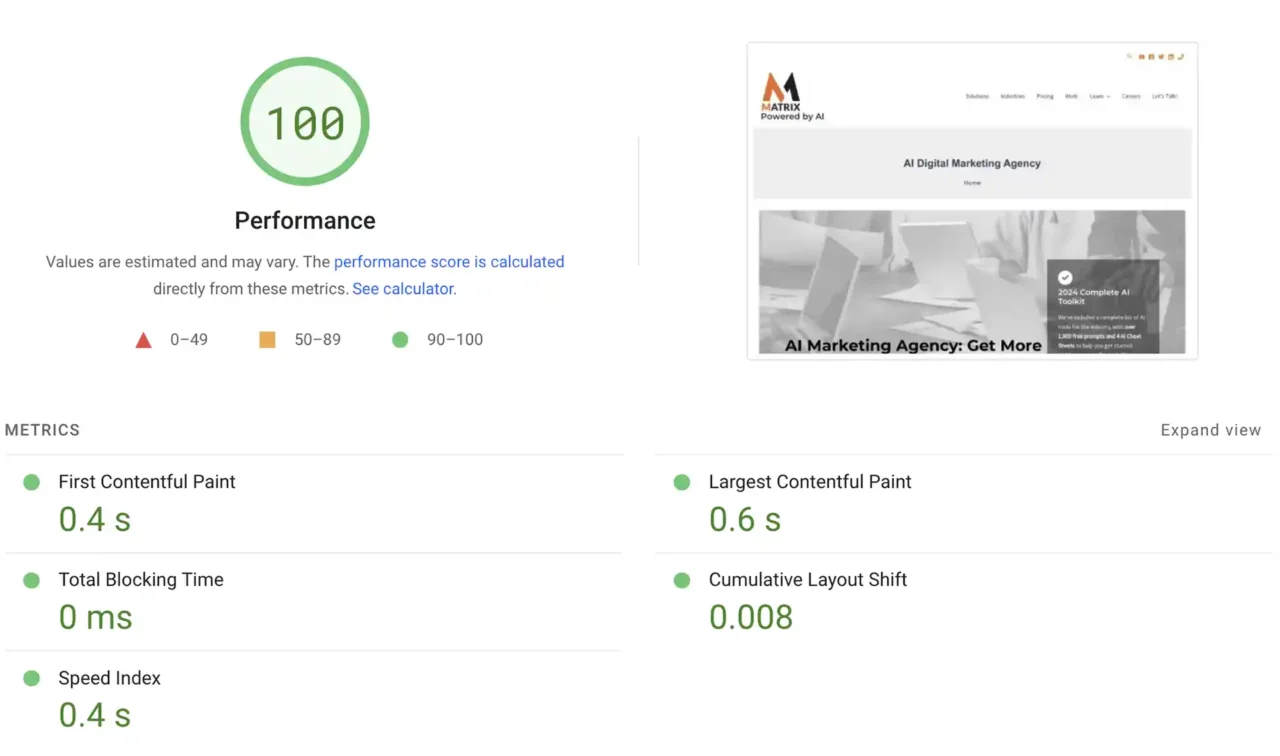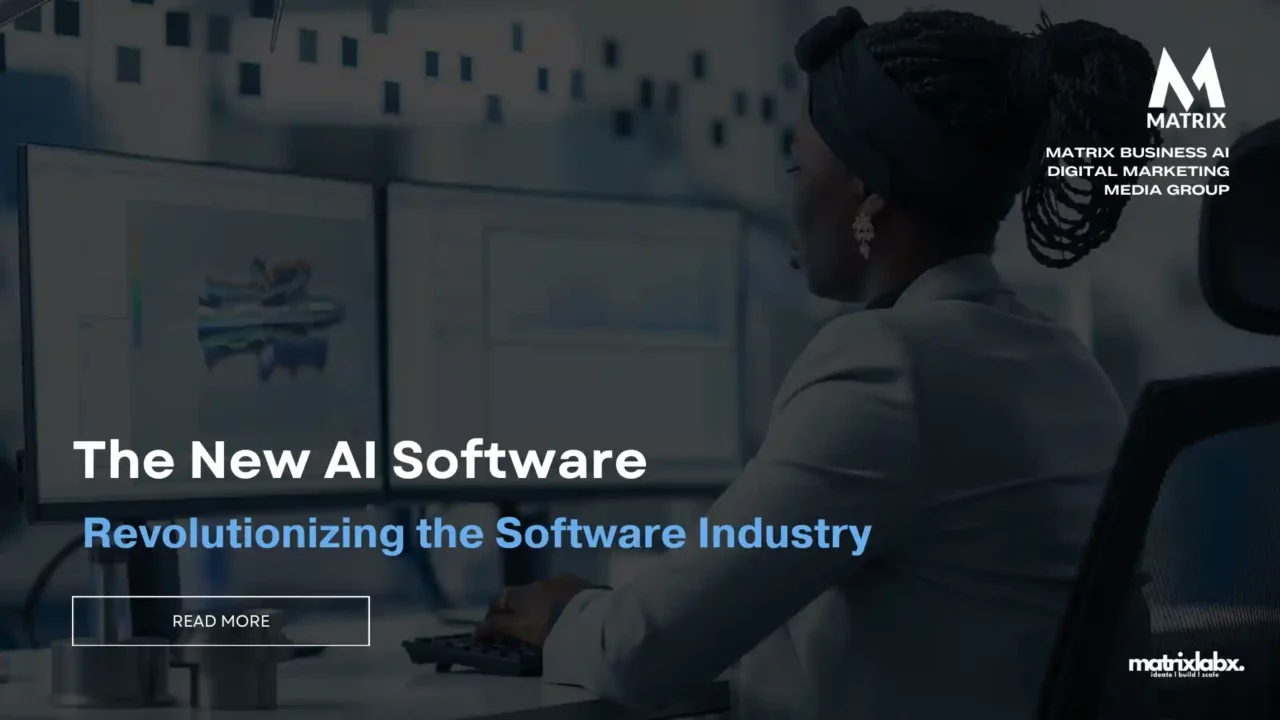The New AI Software Revolutionizing the Software Industry
The New AI Software Revolutionizing the Software Industry
The Current State of the Software Industry in 2024
The software industry is one of the most dynamic and rapidly growing sectors of the global economy. In 2023, the global software market is estimated to be worth $1.9 trillion and will reach $3.2 trillion by 2028.
Worldwide IT spending is projected to total $5.1 trillion in 2024, an increase of 8% from 2023, according to the latest forecast by Gartner, Inc. While generative AI (GenAI) has not yet had a material impact on IT spending, investment in AI more broadly is supporting overall IT spending growth.
This growth is being driven by several factors, including the increasing adoption of digital technologies by businesses and consumers, the rise of new technologies such as artificial intelligence (AI) and machine learning (ML), and the growing demand for software-as-a-service (SaaS) solutions.
Key trends in the software industry in 2024
Some of the key trends that are expected to shape the software industry in 2024 include:
- Continued growth of AI and ML: AI and ML are already being used in a wide range of software applications, and their adoption is only expected to grow in the coming years. AI and ML are being used to automate tasks, improve the accuracy of software predictions, and develop new and innovative software products and services.
- Rise of low-code/no-code development platforms: Low-code/no-code development platforms make it easier for people to develop software without writing code. These platforms are becoming increasingly popular as they allow businesses to develop and deploy software applications more quickly and easily.
- Increased demand for cloud-based software: Cloud-based software is becoming increasingly popular, as it offers many benefits over on-premises software, such as scalability, flexibility, and cost savings. In 2024, we can expect to see even more businesses moving to cloud-based software solutions.
- Growing importance of cybersecurity: Cybersecurity is becoming increasingly important for software companies as they face a growing threat from cyberattacks. Software companies invest heavily in cybersecurity to protect their products, services, and customer data from cyberattacks.
Impact of the software industry on the global economy

The software industry has a significant impact on the global economy. It is estimated that the software industry directly and indirectly employs over 20 million people worldwide. The software industry also contributes significantly to global GDP. In 2023, the software industry is estimated to contribute over 5% of global GDP.
The software industry is in a state of rapid growth and change. The trends shaping the industry in 2024 include the continued growth of AI and ML, the rise of low-code/no-code development platforms, the increased demand for cloud-based software, and the growing importance of cybersecurity. The software industry is a major contributor to the global economy and is expected to grow in the coming years.
The software industry is a complex and ever-changing landscape, but one thing is certain: it is a vital part of the global economy. Software is used in every industry, from healthcare to finance to manufacturing. It is also used by consumers in their everyday lives, from their smartphones to their smart home devices.
The trends that are shaping the software industry in 2024 are exciting and have the potential to revolutionize the way we live and work. AI and ML are already being used to develop new and innovative software products and services, and their adoption is only expected to grow in the coming years.
Low-code/no-code development platforms are making it easier for people to develop software without writing code, opening up the world of software development to a wider range.
Cloud-based software offers businesses a new way to deploy and manage their software applications, and cybersecurity is becoming increasingly important as software companies face a growing threat from cyberattacks. Vertex AI and WastonX are great AI platforms.
The software industry is a dynamic and exciting sector, poised to continue to grow in the coming years.
The rapid pace of innovation in the 21st century has spurred the development of transformative technologies. A notable entrant is the new Artificial Intelligence (AI) software that is redefining the landscape of the software industry.
An amalgamation of deep learning, machine learning, and AI algorithms, these innovative software tools are revolutionizing how we operate and interact with technology.
The Impact of AI Software on the Software Industry
AI software has triggered a seismic shift in the software industry. More than ever, traditional software development and application management are being challenged and, at times, replaced by AI-driven alternatives.
The shift is driven by the promise of improved efficiency, scalability, and sophistication that AI software design brings.
From automating monotonous tasks to enabling predictive programming, the best AI software can handle a broad spectrum of tasks, outclassing their human counterparts in processing speed, precision, and consistency.
AI’s ability to learn and improve over time without explicit programming is an additional needle-mover, catapulting it to the forefront of the software industry.
The Impact of AI Software on the Software Industry
Artificial intelligence (AI) is rapidly transforming the software industry, and its impact is only expected to grow in the coming years.
AI-powered software tools and platforms are already being used to automate many tasks in the software development lifecycle, from code generation to testing to deployment. This is leading to significant improvements in productivity, efficiency, and quality. The top AI software includes AIProdPad, AIbrandPad, AIContentPad, and AILegalPad.
How Artificial intelligence software is impacting the software industry:
Accelerated software development: AI can automate many repetitive and time-consuming tasks involved in software development, such as code generation, testing, and debugging. This can free developers to focus on more creative and strategic work and help bring products to market faster.
Improved software quality: AI can be used to detect and fix bugs in software more effectively than traditional methods. It can also be used to analyze large datasets of user data to identify patterns and trends that can help developers improve the usability and performance of their software.
Enhanced cybersecurity: AI is being used to develop new and innovative cybersecurity solutions that can help protect software and data from attacks. For example, AI-powered security systems can detect and respond to threats in real time. They can also be used to develop more secure authentication and authorization systems.
New business opportunities: AI enables software companies to develop new products and services that are impossible. For example, AI-powered software can be used to develop personalized recommendation systems, intelligent virtual assistants, and self-driving cars.

Impact on different stakeholders in the software industry:
Software developers: AI is having a significant impact on the work of software developers. AI-powered tools and platforms are automating many of the tasks that developers used to do manually, freeing them up to focus on more creative and strategic work.
However, AI also creates new challenges for developers, who must learn to use new tools and technologies effectively.
Software testers: AI is also having a significant impact on the work of software testers. AI-powered tools and platforms can automate many of the tasks that testers used to do manually, such as unit testing, integration testing, and system testing. However, AI is also creating new challenges for testers, who must learn how to test AI-powered software effectively.
Software managers: AI is helping software managers to improve their efficiency and productivity. For example, AI can track and analyze software development progress, identify potential risks, and optimize resource allocation.
Software end users: AI is also having a positive impact on software end users. AI-powered software is more intelligent and responsive than traditional software and can provide users with a more personalized and engaging experience.
The impact of AI software on the software industry is overwhelmingly positive. AI is helping software companies to develop better products and services faster and is also helping to improve the efficiency and productivity of software development teams.
Here are some specific examples of how enterprise software is being used in the software industry today:
- Google Cloud Platform offers various AI-powered services for software development, including AutoML, Cloud Test Lab, and Cloud Code.
- Microsoft Azure also offers a variety of AI-powered services for software development, including Azure Machine Learning, Azure Test Manager, and Azure App Service.
- GitHub offers a variety of AI-powered tools for software development, including Copilot, Codespaces, and Actions.
These are just a few examples of how software is being used in the software industry today. As AI technology continues to develop, we can expect to see even more innovative and transformative applications of AI in the years to come.
AI Software as a Game Changer

AI software is emerging as a game-changer in a myriad of ways. From automating repetitive tasks to decision-making and predictive analysis, AI software is drastically reshaping the software industry.
Companies can now dissect complex data and translate it into actionable insights, helping them make better business decisions. Furthermore, AI’s ability to process vast amounts of data quickly makes it a critical asset in big data management.
AI software is also turbocharging automation. The software industry’s shift towards Agile and DevOps practices is further propelled by AI’s ability to automate testing, deployment, and other stages of the software development process.
Hurdles and the Future of AI Software
However, the adoption of AI software is challenging. Issues like data privacy, inflated expectations, and the need for a high degree of technical expertise can pose challenges.
Nonetheless, the future of AI software looks promising. With advancements in AI algorithms and machine learning models, the abilities of AI continue to expand.
Concurrently, efforts are underway to mitigate its challenges, with increased emphasis on ethical AI, privacy laws, and concerted efforts to make AI more user-friendly.
Conclusion
The emergence of AI software is indisputably disrupting the software industry. Its transformative power, coupled with its ever-evolving capabilities, marks a massive leap in technological progress.
Despite the challenges it presents, AI software is poised to reshape our future, creating exciting possibilities and unprecedented potential for companies worldwide.
As we move forward, staying abreast of these developments is crucial as AI software continues to eat the software industry, unlocking new levels of efficiency, innovation, and industry growth.

